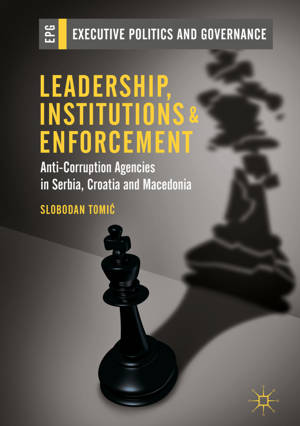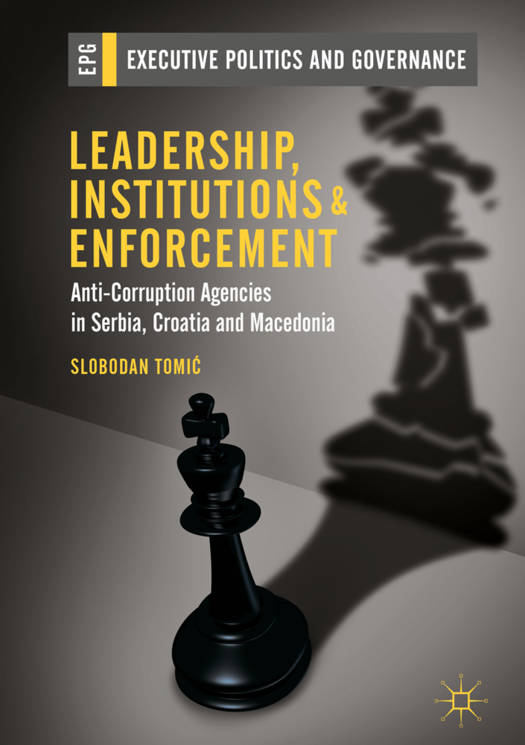
Door een staking bij bpost kan je online bestelling op dit moment iets langer onderweg zijn dan voorzien. Dringend iets nodig? Onze winkels ontvangen jou met open armen!
- Afhalen na 1 uur in een winkel met voorraad
- Gratis thuislevering in België vanaf € 30
- Ruim aanbod met 7 miljoen producten
Door een staking bij bpost kan je online bestelling op dit moment iets langer onderweg zijn dan voorzien. Dringend iets nodig? Onze winkels ontvangen jou met open armen!
- Afhalen na 1 uur in een winkel met voorraad
- Gratis thuislevering in België vanaf € 30
- Ruim aanbod met 7 miljoen producten
Zoeken
Leadership, Institutions and Enforcement
Anti-Corruption Agencies in Serbia, Croatia and Macedonia
Slobodan Tomic
€ 52,95
+ 105 punten
Omschrijving
This book presents an analysis of five anticorruption agencies (ACAs) from Serbia, Macedonia and Croatia, exploring the impact of organisational factors and leadership on their enforcement patterns during the first decade of the transitional reforms (2001-2012). Contrary to the conventional theory of agency insulation, the analysis reveals that the ACAs' de facto autonomy was not crucially shaped by their statutory independence, but rather by the reputational management of their leaders. The book draws on a mixture of qualitative and quantitative analysis to document these reputational strategies and how they shaped the ACAs' de facto autonomy. The findings also suggest that that the ACAs' organisational model - defined by the delegated mandate and powers (preventative vs suppressive) - represented a key variable that mediated under which conditions high de facto autonomy can be achieved. The book offers contributions to the study of anticorruption policy and ethics regulation, as well as the wider inquiry into drivers of agency independence, particularly in transitional contexts.
Specificaties
Betrokkenen
- Auteur(s):
- Uitgeverij:
Inhoud
- Aantal bladzijden:
- 243
- Taal:
- Engels
- Reeks:
Eigenschappen
- Productcode (EAN):
- 9783319975825
- Verschijningsdatum:
- 19/03/2019
- Uitvoering:
- Hardcover
- Formaat:
- Genaaid
- Afmetingen:
- 148 mm x 210 mm
- Gewicht:
- 462 g

Alleen bij Standaard Boekhandel
+ 105 punten op je klantenkaart van Standaard Boekhandel
Beoordelingen
We publiceren alleen reviews die voldoen aan de voorwaarden voor reviews. Bekijk onze voorwaarden voor reviews.











